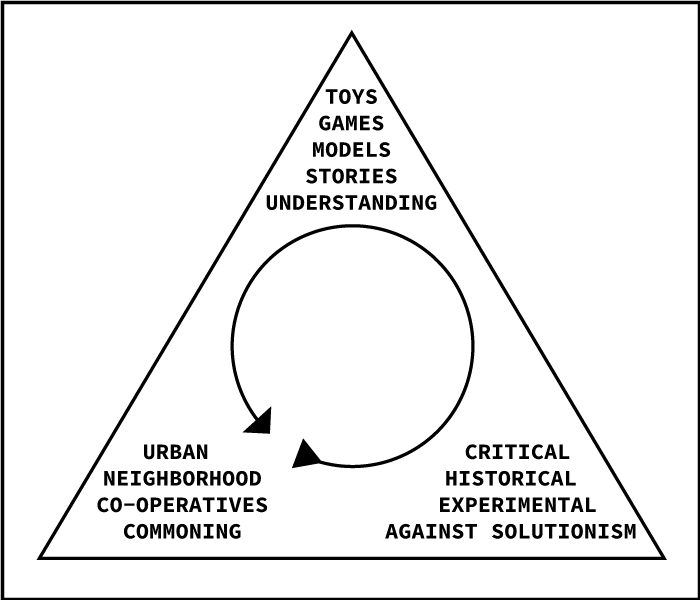The sustainable use and the organisation of common resources is highly complex. With the focus
on
alternative,
utopia-inspired
urban neighbourhood initiatives in Switzerland this research project proposes experimental
design
and inquiry into
media-based
thinking tools which will help to better illustrate, demonstrate and negotiate the complexity of
these sharing
processes.
Commons are sustainably and collectively managed resources, such as food, or communication
infrastructures,
such
as Wi-Fi. Commoning, then, is the activity of sharing these resources. The aspiration formulated
throughout
numerous
alternative, utopia-inspired projects that seeks to design infrastructural aspects of urban
everyday
life in an
alternative
and autonomous way, through commoning, raises several questions. Since, based on the high level
of
complexity that
(occasionally)
comes with the shared use of resources, for the individual community member it is often
difficult to
estimate his
or
her own action and consequences to the very last detail. Especially when it comes to
unpredictable,
complex
adaptive
processes, he or she can no longer completely grasp them intuitively nor follow them without the
help of
media-based
thinking tools — such as computer-based models or scenarios — which make those processes not
only
visible but also
comprehensible.
For this reason, a mobile software application will be developed and tested in close
collaboration with the
members
of three Swiss urban neighborhood projects: NeNa1 in Zurich, LeNa in Basel and Warmbächli in
Bern.
We will create
playful
simulations and design new thought-spaces for commoning. Our aim is to enable alternative and
engaging ways for
future
social participation and transformation processes.
The four-year project, which combines methods from humanities, social science and design
inquires the following
central
question: How could an experimental and community-based approach to design and development of a
digital game system
stimulate
reflection on the intuitively incomprehensible complexity of commoning, make it more
understandable
and negotiable
through
playing and gaming?
Thinking Toys (or Games) for Commoning
